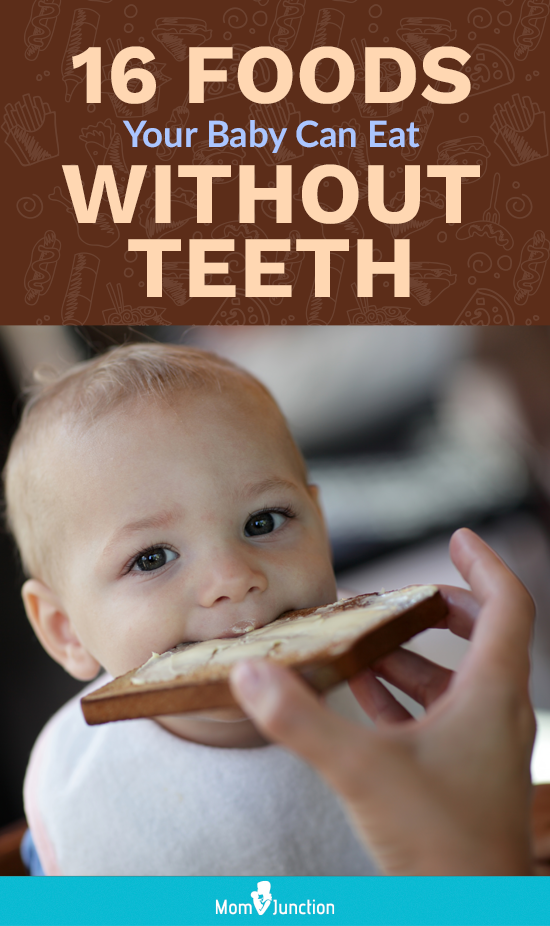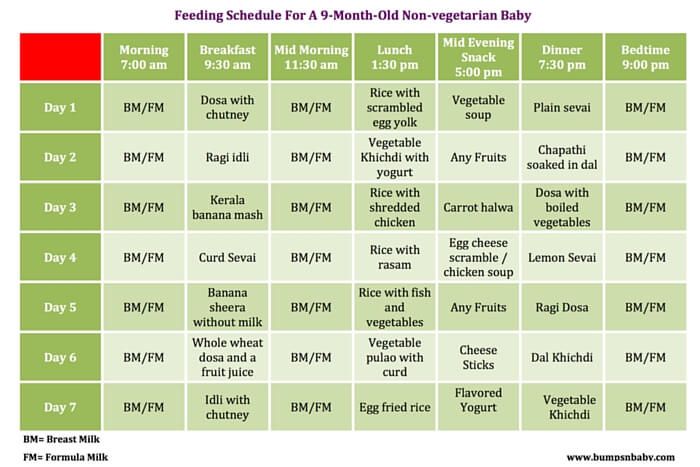Newborn baby feeding all night
How to cope with night feeds | Baby & toddler, Feeding articles & support
Waking up to feed your baby in the early weeks can be mentally and physically tiring. NCT breastfeeding counsellor and postnatal practitioner Fran Bailey shares her tips on making night feeds more manageable.
Sleep – or lack of it – is one of the biggest challenges when you have a newborn. After busy days looking after your baby, you’d be forgiven for looking forward to a good night’s shut-eye.
But the fact is, newborn baby’s tummies are small, and they need to wake up every few hours to feed. It would be a cause of concern if they didn’t! Unfortunately, this means that your own sleep will be incredibly disrupted for the first few months.
NCT breastfeeding counsellor and postnatal practitioner Fran Bailey says:
‘It’s really normal for babies to wake lots in the night to feed in the early weeks and months. This is part of newborn behaviour that ensures they get enough milk but also to keep them safe.
’
Be prepared
It can help to be as prepared as possible to minimise the amount of time you have to spend getting everything ready when you’re tired and your baby’s hungry. If you’re mixed or formula feeding, make sure you have bottles already sterilised, and formula or expressed milk to hand.
Place a changing mat, nappies, change of clothes if needed and wipes (or cotton wool balls and fresh water) close by so you can change your baby quickly. If possible, try to change baby’s nappy before a feed to avoid waking them up too much afterwards. However, only change them if they’ve done a poo or their nappy is very wet, as it might overstimulate them when you’re trying to keep them relaxed.
It’ll help to have your baby in the same room and close to you for the first six months so you can hear when they wake and you don’t have to go too far. This can all help the night feeds feel like less of a mission.
Put a glass of water and even a snack by your bed or feeding chair so you have some refreshment for yourself during feeds.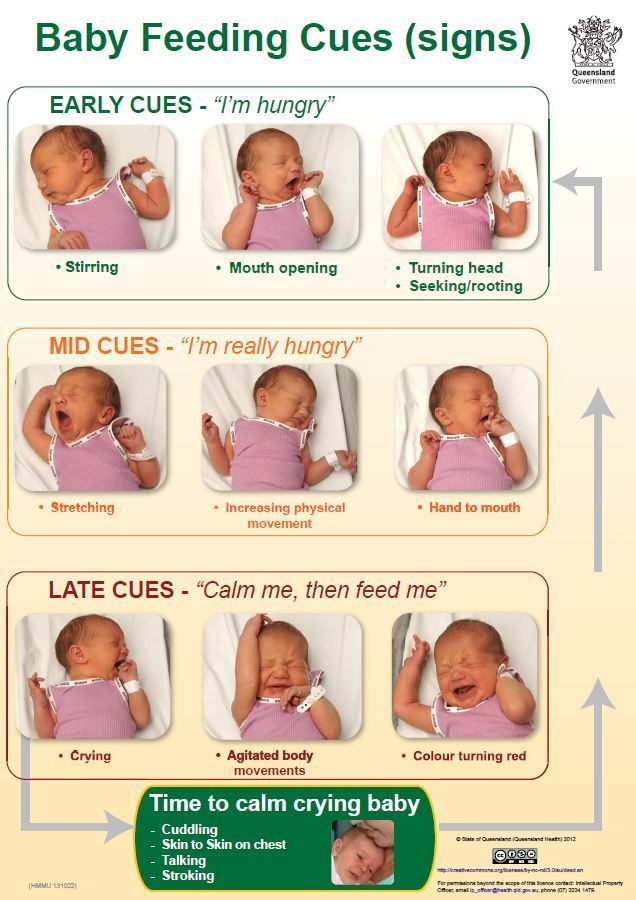
You’re not alone
Involving your partner or a family member or friend with night feeds can make a huge difference. Just knowing you’re not the only one who has to deal with night feeds can help you feel less lonely and like you’re both in this together.
Fran says: ‘In the early weeks, when partners are on parental leave, having some company (and support!) while feeding can be invaluable. Some couples take it in turns to offer a feed to their new baby. For families where women are breastfeeding, this doesn’t mean that partners can’t help.
‘There is lots that partners can do to help in the middle of the night. This might be bringing baby to mum, or changing nappies and settling baby back to sleep.’
"Having some company and support when feeding at night can be invaluable"
After a feed, partners can burp baby and look after them so you can get a few more precious minutes rest. Sharing lots of cuddles and helping to meet your baby’s needs at night can be an important bonding time for your partner and baby, too.
Even if you’ve had to be up for longer in the night, family and friends can help during the day, especially if you’ve got older children. NCT volunteer for Bolton and North West Manchester, and mum to Dorothea and Edward, Lorna says: ‘My hubby works from home, so he gets up with the toddler and baby at 6.30 and I go back to sleep until about 8 to catch up a little.”
If you’re breastfeeding but struggling with the frequent night awakenings, you could express some milk during the day for your partner to bottle feed your baby in the evening (if they’ll take it) so you can get some undisturbed sleep then.
Keep things low-key
Make getting back to sleep after feeds easier by trying not to wake your baby up too much at night. When you’re tired yourself, it might be tempting to put on the TV or go into a bright room, but this can make settling afterwards harder for you both.
Fran says: ‘There are things you can do to help your baby recognise the difference between night and day. Use dimmed lights and more gentle voices during a night feed…this will probably help you get back to sleep too. It’s worth avoiding caffeinated drinks or other stimulants overnight as they might make it harder for you to go back to sleep.”
Use dimmed lights and more gentle voices during a night feed…this will probably help you get back to sleep too. It’s worth avoiding caffeinated drinks or other stimulants overnight as they might make it harder for you to go back to sleep.”
Volunteer Lorna says: ‘I have the lights as low as possible and feed in a rocking chair. I can change my son without having to have too much light on, and not wake either of us up too much.’
To smartphone or not to smartphone?
One of the most popular ways of passing time in the small hours is to check your phone. WhatsApping your NCT friends can be a great way to feel connected and get emotional support during night feeds. Checking the latest celebrity gossip can also make the time pass quicker!
Just bear in mind that mobiles might not always be the best distraction. Fran says: ‘There is some research that indicates that the light from smartphones can interfere with sleep patterns, so some families may find that it is easier to get back to sleep if you haven’t been looking at your phone. ’
’
Find a balance between looking at your phone and focusing on baby. After all, you don’t want to be so absorbed that you don’t realise that your baby is already asleep and you could be too.
Some mums find that Kindles can be a great way to pass the time. One NCT volunteer says: ‘My husband got me a Kindle so I avoided being on my phone too much and it felt more relaxing if I could read – I’ve got through so many books over nine months.’
Sleep like a baby
Even with preparation and help, night feeds can be a shock to the system. It can help to adjust your own ideas of day and night to fit in with your baby. It’s not always easy, but in the early days, it can pay off to try to sleep as much as you can when your baby does during the day. This can really help recover from the birth or multiple wake-ups during the night. Alternatively, get your partner, another family member or a good friend to look after your baby for an hour or two while you lie down.
For the time being, you might have to accept that your sleep will be in chunks, rather than one big, uninterrupted rest. Like with anything, if you’re constantly counting the minutes, the whole experience could feel longer. If you can, accept that night feeds are a necessary part of your baby’s development and it won’t always be like this. Enjoy the extra cuddles and just having time alone with them.
Like with anything, if you’re constantly counting the minutes, the whole experience could feel longer. If you can, accept that night feeds are a necessary part of your baby’s development and it won’t always be like this. Enjoy the extra cuddles and just having time alone with them.
Babies are unique
It’s easier said than done, but try not to get too hung up about how much other people say their babies sleep. While you’re struggling with what feels like constant feeding at night, it’s not helpful to hear that someone else’s child is sleeping through. And there are so many definitions of what 'sleeping through' actually means! For some parents, it's between 11pm and 4am, while for others it means just two very short feeds in the night.
You can’t change your baby’s needs, so instead try to find the best way of getting through night feeds for you. And most importantly, try and remember that the night feeds won’t last forever. Like everything else, it’s a phase that will pass and take you on your next journey with your baby.
Further information
Our support line offers practical and emotional support with feeding your baby and general enquiries for parents, members and volunteers: 0300 330 0700.
Make friends with other parents-to-be and new parents in your local area for support and friendship by seeing what NCT activities are happening nearby. To find out when an NCT nearly new sale is happening near you, search here.
You might find attending one of NCT's Early Days groups helpful as they give you the opportunity to explore different approaches to important parenting issues with a qualified group leader and other new parents in your area.
Newborn Cluster Feeding All Night
Struggling with your newborn cluster feeding all night and not sleeping? See how to make this stage easier and stay motivated to breastfeed.
Cluster feeding has become so predictable these days.
Starting around bedtime, it seems like you’re feeding your baby for several minutes every hour. By the time you’ve burped and swaddled her, she seems hungry yet again. In fact, she’d cry all night if you weren’t feeding her during for a good four to five hours.
By the time you’ve burped and swaddled her, she seems hungry yet again. In fact, she’d cry all night if you weren’t feeding her during for a good four to five hours.
With the constant breastfeeding, your nipples have begun to hurt. You’re exhausted and have no time for anything else, and this doesn’t even count the frequent feedings all day long. You wonder if you even have enough milk, and how she could be this hungry.
Despite your goals to breastfeed, it’s times like these when formula is starting to look like an appealing option.
How to handle your newborn cluster feeding all night
I hear you, mama.
As a first-time mom, I felt glued to my baby, resenting each time he cried to be fed. I even wanted to convince myself and my husband that he was crying for other reasons like sleep or boredom.
This is understandable, considering that the birth of a baby can come as a huge shock for moms not used to nursing round the clock. It didn’t help that he’d nurse for long stretches—some 40 minutes at a time—only to want to eat again soon after.
In fact, right on cue, he’d want to cluster feed from about 6:30pm all the way through the late evening. If I put him down any earlier than that, he’d cry a few minutes later and wouldn’t stop until I fed him again. Even when I learned that this was a phase, I didn’t know how long it would last.
If you find your newborn cluster feeding all night, rest assured you’re not alone. More importantly, this is a phase that will eventually peter out with time. That said, what can you do to make cluster feeding more bearable?
Take a look at these tips that can help:
1. Nurse lying down
One of the biggest roadblocks with cluster feeding is the sleep deprivation that goes along with it.
During the day, feeding constantly was a bit more bearable—after all, this is the time we’re supposed to be awake. But I’d dread the nights when I knew I’d be battling my own sleep needs with the baby’s frequent wake ups.
An easy hack? Nurse lying down. This allows you to rest at least while the baby is feeding instead of having to sit up in bed. Even if you don’t co-sleep with the baby (I didn’t), you can still nurse lying down to make yourself a bit more comfortable during the feed.
Even if you don’t co-sleep with the baby (I didn’t), you can still nurse lying down to make yourself a bit more comfortable during the feed.
Free email challenge: Feeling stuck in motherhood? Want to enjoy raising your kids again? Join my newsletter and sign up for the Motherhood Motivation 5-Day Challenge! You’ll get one actionable tip a day that will make you think (and act) about motherhood differently:
2. Get others to do what you can’t
Dishes piled up, dinner unprepared, the houseplants all but drying up… these are enough to drive any mom crazy. Imagine keeping a running tally of all the things you still have to do, except you’re stuck feeding the baby.
Since you’re the only one who can nurse the baby, hand these undone tasks to other people. Your partner can change diapers, your mom can burp the baby after you breastfeed, even your three-year-old can put his toys away.
Give yourself the permission to do nothing so you can focus on your baby’s feeding needs. To help you feel better about devoting so much time to her, get others to fill in and do what you can’t.
To help you feel better about devoting so much time to her, get others to fill in and do what you can’t.
3. Make sure your baby is actually eating
See if this sounds familiar: You fed your baby for nearly 40 minutes, put her down in the crib… except she woke up and acted like she hadn’t just eaten.
How can she be hungry again?! you wonder.
Sometimes, she’s actually not eating that whole time she was on your breast. She could’ve been comfort nursing, soothing herself to sleep by sucking. That’s why, when you finally put her down, she’s still hungry—because she didn’t actually eat.
The next time she nurses, make sure she’s awake and eating. Listen for sucking sounds that indicate she’s taking in the milk. Look at her throat to see if it moves—this is another sign that she’s swallowing. And keep her awake, even slightly so, while she nurses.
There’s nothing wrong with comfort sucking, but if you’re wondering why she seems hungry after all that time, she might not have been eating.
4. Make the most of it
Sometimes all it takes to turn things is around is a simple change in perspective. Sure, you can list several problems with nursing all evening, but you can also probably find creative ways to make the most of it as well.
See this not as a time you’re “stuck” with the baby, but as a chance to read a book, catch up on emails, or watch your favorite shows. Consider this your excuse to not have to do so many chores, or to take a much-needed break. Come prepared with plenty of snacks and water nearby, and try to enjoy the moment.
Remind yourself of the benefits of cluster feeding, too. Many moms have reported that their babies will sleep in longer stretches after a cluster feed than if they didn’t nurse for so long. Remember that you’re increasing your milk supply the longer you nurse.
And know that this is temporary.
In fact, for the first month after my babies were born, I made it a point not to leave the house, other than for appointments. Giving myself that month reminded me that this truly is the time to take it easy, not to get life back to normal. It’s easier to tough it out when you know it won’t last forever.
Giving myself that month reminded me that this truly is the time to take it easy, not to get life back to normal. It’s easier to tough it out when you know it won’t last forever.
When do newborns get easier? Learn the milestones here.
5. Take care of your breasts
Disclosure: This article contains affiliate links, which means I will earn a commission—at no extra cost to you—if you make a purchase.
There’s no getting around it: constant nursing can take a toll on your breasts. We’re talking cracked, bruised, or bleeding skin, all while your baby is tugging at them. It’s hard to enjoy the moment when you’re in serious pain.
That’s why it’s important to take care of your breasts and not just try to weather the pain. Reach out to your doctor, especially if the pain is unbearable, as you might have an infection that could only be remedied with prescription.
Then, do your best to nurse them back to health. You can:
- Use lanolin cream before and after breastfeeding
- Air dry your breasts, either by not wearing a top or using breast shells
- Use compresses like these
The quicker your breasts can heal, the more comfortable nursing your baby for long stretches can be.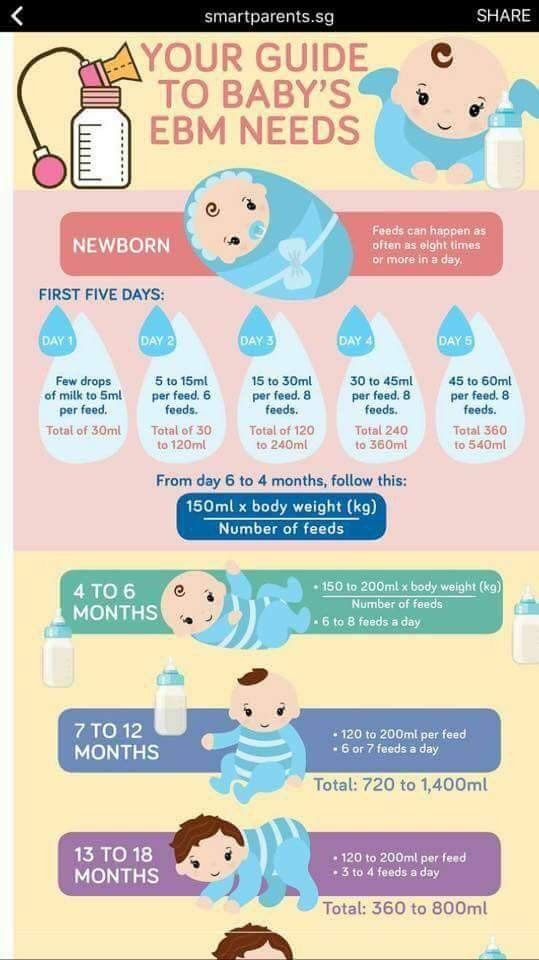
Conclusion
Struggling with your newborn cluster feeding all night is no joke. You’re sleep-deprived, delirious, and downright exhausted from the constant nursing.
Rest assured that you can still do plenty to make this phase go by more smoothly. Nurse lying down so that you have one less obstacle—sitting up—during those nursing sessions. Recruit others to tick off tasks you can’t do, so that you’re not itching to do them yourself.
Check that your baby is actually eating—comfort nursing can trick you into thinking that she’s full when she hasn’t been eating all that time. Make the most of your nursing sessions, from watching movies to reminding yourself of the benefits you get out of them.
And lastly, take care of your breasts, making sure to reach out to your doctor and using home remedies to ease the discomfort.
Hang in there, mama. What you’re experiencing is normal—down to those predictable hours in the evening when your baby starts cluster feeding.
Get more tips:
- Baby Feeding Every Hour (And Not Sleeping, Either)?
- 5 Reasons Your Newborn Is Constantly Hungry and Crying
- 6 Ways to Handle Your Newborn Constantly Feeding
- What to Do When Your Baby Wants to Breastfeed Constantly
- 5 Tips to Stop the Pain After Breastfeeding
Don’t forget: Join my newsletter and sign up for the Motherhood Motivation 5-Day Challenge:
How to wean a child from night feeding, wean a child to eat at night
0-6 months
Article
5/5 2 reviews
A newborn baby eats at any time of the day, day or night. As the baby's digestive tract grows stronger, the interval between feedings gradually increases. Moms have a natural question: when and how should you stop night feedings so that the baby sleeps all night?
8 min. for reading Feb. 17, 2022
Contents
Should I feed my baby at night
How many nightly feeds does my baby need
- For breastfed babies, combination breastfeeders and babies with reflux
- Formula-fed babies
How to know if your child is ready to give up nighttime meals
How to wean a baby from night feedings: expert advice
FAQs
Resources
Is it necessary to feed a baby at night while taking care of the baby if you are chronically sleep deprived. But why can't a baby go without food at night?
In the first months, the baby does not have a clear regime, he still weakly distinguishes between day and night: during prenatal development, the baby is used to getting everything he needs from his mother at any time. And most importantly - at the beginning of life, the child grows very quickly and requires a lot of nutrients, while having a small stomach and a still fragile digestive system. For these reasons, the baby cannot go without food for a long time and requires food approximately every 2-3 hours, and pediatricians, in turn, insist on the need for nightly breastfeeding of a newborn.
For these reasons, the baby cannot go without food for a long time and requires food approximately every 2-3 hours, and pediatricians, in turn, insist on the need for nightly breastfeeding of a newborn.
Important!
Sleep and nutrition patterns, as well as the need for them, are individual for each child. Therefore, if it seems to you that the baby eats little and rarely, or vice versa - too often, consult with the doctor you are seeing.
In addition, night feedings, although they interfere with sleep, are useful not only for the child, but also for the mother. They help to properly establish lactation, because it is at night that the hormone prolactin is produced, which is responsible for the amount of breast milk.
Advice
With proper organization of night feedings, the baby eats half asleep and quickly falls asleep further. To do this, start a night light in the room and be ready to feed as soon as the baby wakes up. Sleep in comfortable nursing clothing if you are breastfeeding.
Sleep in comfortable nursing clothing if you are breastfeeding.
How many night feeds does a baby need
The smaller the child, the more often he needs to be fed. But over time, the digestive tract gets stronger, and the baby can eat more and endure longer breaks between meals. Below is an approximate number of night feedings, depending on the age of the baby:
1. For breastfed, mixed breastfed and reflux babies:
| Age | Number of night feedings |
| 0-3 months | breastfeeding on demand approximately every 2-3 hours |
| 3-4 months | 2-3 times as required or every 3-6 hours |
| 5-6 months | 1-2 meals |
| 7-9 months | 1, possibly 2 times |
| 10-12 months | sometimes 1 feeding |
| 12+ months | usually without night feedings |
Important!
During growth spurts, your baby should be fed as needed. Such bursts occur approximately at 5, 8, 14, 19, 26, 37 and 46 weeks of life and last about 7 days.
Such bursts occur approximately at 5, 8, 14, 19, 26, 37 and 46 weeks of life and last about 7 days.
How do you know if your baby is ready to give up nighttime meals? After this period, the need for nightly meals depends on the pace of development, individual needs and the health of the child. If the baby was born prematurely or is not gaining weight well, experts recommend waking him up 3.5-4 hours after the previous feeding and offering the breast.
Advice
If you're not sure if your baby is ready to stop feeding at night, talk to your doctor. The specialist will help you understand and make the right decision based on the physical indicators of your child.
If the baby is healthy and has a good weight, somewhere between 4 and 6 months old, he will begin to get enough calories during the day so that he does not need to feed at night. In breastfed children, this process may be a little slower - up to 6–10 months [2].
It is also important to take into account that the refusal of nighttime "snacking" occurs gradually: there are very few cases when a child stops eating at night and immediately starts sleeping 5-6 hours in a row. Usually, babies who are used to eating several times a night wake up out of habit, and it will take time to change this routine. First, the baby will ask for food half an hour later than usual, then an hour, a little later - two, and so on. Step by step, over several weeks, night sleep reaches 6-7 hours in a row. This joyful moment can come at 4 months or closer to 12 months: all babies are unique, and it's not scary or unusual for an infant to sleep much longer without food, while an older child keeps waking up to eat.
Advice
Dentists recommend abolishing nighttime feedings for children older than one year, as food leftovers in the mouth can damage milk teeth. This risk is minimal when breastfeeding.
Also, remember that your child has many other important needs. Perhaps he wakes up and calls you, not so much for food, but for comfort and closeness. What could be more reassuring and safer than the caring hands of parents who feed and cradle? feedings.
Perhaps he wakes up and calls you, not so much for food, but for comfort and closeness. What could be more reassuring and safer than the caring hands of parents who feed and cradle? feedings.
How to wean a child from night feeding: expert advice
Many parents are interested in how to properly wean a baby from eating at night so that it does not become a lot of stress for him. Especially if the baby stubbornly refuses to give up night feeding.
- Start the weaning process slowly and gradually. Slowly reduce your nightly breastfeeding time or give your baby less milk (mixture if formula-fed) from a sippy cup. Try to extend the intervals between
Important!
Under no circumstances should the issue of night feedings be turned into a battlefield. The “cry - stop - wean” method loosens the baby’s nervous system and can provoke severe stress.
- Make sure your child eats well during the day.
 Babies become more active as they get older, and if they get carried away playing or walking, they may skip meals or not eat enough and then try to make up for it at night. Therefore, take scheduled breaks during the day for "silent feeding" in a place where nothing will distract the crumbs from eating.
Babies become more active as they get older, and if they get carried away playing or walking, they may skip meals or not eat enough and then try to make up for it at night. Therefore, take scheduled breaks during the day for "silent feeding" in a place where nothing will distract the crumbs from eating.
Advice
If you're not sure if your child is eating enough, check their height by weighing them at the doctor's office.
- Try feeding your baby before bed. If a child goes to bed with a full tummy, they are less likely to wake up hungry in the middle of the night.
- Ask dad to get up at night with the baby. If an awakened baby hears your smell or the aroma of breast milk, this can provoke his appetite, even if the baby did not wake up because of hunger. If you sleep in the same room, it's best to move the crib to dad's side.
- Phase out feedings one at a time. When the baby wakes up to eat at night, go to him and reassure him, gently but firmly explain that now is the time to sleep, not eat.
 At the same time, pat and stroke the child on the back or tummy, but do not pick him up. Even if the baby does not yet understand your words, he gradually catches the meaning, and your presence and attention will be soothing to him.
At the same time, pat and stroke the child on the back or tummy, but do not pick him up. Even if the baby does not yet understand your words, he gradually catches the meaning, and your presence and attention will be soothing to him. - Try giving your baby water to drink. Babies may wake up at night not from hunger, but from thirst, especially in hot weather or in a room with dry air. If after half an hour the baby wakes up again, feed him, and if not, then he is full and satisfied.
- If the baby has been crying inconsolably when stopping night feeds for several days in a row, stop the attempt and return to your normal routine for a while. Let the baby calm down and start weaning him again in a week or two.
- Do not stop night feedings during the transition period. For example, when you are going to return to work or go on vacation without a baby. If your baby sees less of you during the day, try to hug and interact with him more in your free time. It is necessary that he clearly feels your connection and care, then the baby is less likely to seek solace in the middle of the night.

- If the baby continues to require nighttime feeding, try to create conditions in which he does not want to eat. An excellent opportunity appears at 8-9 months, when the baby is already confidently eating complementary foods. To do this, move the usual bowl of porridge to the evening: this way the child stays full longer and may not ask for an extra portion of food at night.
See also: Introduction of complementary foods to an infant
Advice
Do not give your baby new foods at night, introduce them only in the morning. Otherwise, you run the risk of observing the reaction to unfamiliar complementary foods instead of sleep. Also, do not give your child meat at night, it is hard to digest, can cause discomfort in the stomach and restless sleep.
Also keep in mind that the decision to not feed at night depends in part on how it affects you. If you enjoy breastfeeding or drinking from a cup at night, there is no reason to stop: at a certain point, the baby will stop asking for food on its own. But if you feel that lack of sleep prevents you from living and enjoying motherhood, and the baby is already physically ready for change, it's time to try switching to a daily routine. In any case, you should do what is best for you and your family.
FAQ
1. How often should a newborn be fed?
A newborn needs to be fed every 2-3 hours, i.e. 10-12 times a day. Further, the intervals between feedings gradually increase to 3-6 hours, and the child gets the opportunity to sleep all night.
2. How much should a child eat per day?
The daily "portion" of food for the baby depends on his age and weight. From 10 days to 1.5 months, the baby needs such an amount of food, the weight of which is approximately 1/5 of the child's body weight. From 1.5 to 4 months - 1/6 of the baby's weight, from 4 to 6 months - 1/7, from 6 to 8 months - 1/8, from 8 to 12 months - 1/9.
3. What happens if you don't stop night feedings?
Most likely, the child will eventually refuse them himself. But some pediatricians, notably Richard Ferber [1], warn that unnecessary nighttime feedings can cause sleep problems. Also, food leftovers after late “snacks” can provoke the development of caries in milk teeth.
But some pediatricians, notably Richard Ferber [1], warn that unnecessary nighttime feedings can cause sleep problems. Also, food leftovers after late “snacks” can provoke the development of caries in milk teeth.
Sources
-
- Baby sleep training: Night weaning. By Darienne Hosley Stewart | Medically reviewed by Lisa Dana, M.D.
-
- Night Feedings by Age – When Do You Try Night Weaning? By Nicole Johnson, Founder and Lead Sleep Consultant in Sleep Training.
Related Articles
Child Development by Month
Latest Reviews
Average Customer Rating
2 customer ratings
Snapshot of community ratings
- 5 2
- four 0
- 3 0
- 2 0
- one 0
Recommended Articles
0-6 months
Article
Storing breast milk: TOP 5 tips on how to store it
0 reviews
If breastfeeding is not possible, express with a breast pump or by hand. And we will tell you what and how to store breast milk.
And we will tell you what and how to store breast milk.
0-6 months
Article
Constipation in a newborn: what to do?
0 reviews
The appearance of a baby in the house is accompanied by both joy and feelings of young parents. Each change in the behavior and condition of the baby alarms the mother, especially if it causes discomfort and tears in the baby. One such phenomenon is constipation in a newborn. While the baby is not able to say about her well-being, the mother is the main detector of the condition and health of her child, she must understand when the baby experiences discomfort or pain, what caused it, and what to do in such cases.
0-6 months
Article
Breastfeeding: the first steps after childbirth
Mothers usually start breastfeeding their newborn while still in the hospital. The physiology of the infant is well adapted to this. During the first feeding, the baby receives colostrum, which contains antibodies that fight infections.
The physiology of the infant is well adapted to this. During the first feeding, the baby receives colostrum, which contains antibodies that fight infections.
0-6 months
Article
Smoking while breastfeeding (HB): the impact on the baby
0 reviews
Tips and position on smoking while breastfeeding / smoking while breastfeeding from well-known international and Ukrainian pediatricians, WHO and La Leche League - a public organization to support breastfeeding women.
0-6 months
Article
Expressing Breast Milk: Top 5 Tips
0 reviews
The most natural and healthy food for a baby is and has always been breast milk. Its composition and properties are ideal for a small organism and not a single, even the most perfect artificial infant formula can replace this diet.
0-6 months
Article
How to increase the amount of breast milk?
0 reviews
The birth of a child is the most memorable and long-awaited event in life. When carrying it, the mother faces many difficulties, which, with the advent of the baby, it would seem, should decrease. However, it is not. After giving birth, a child requires a lot of time and attention, as well as round-the-clock care. During this period, its proper nutrition is especially important, on which the growth and further development of the little man depends. The best thing for him is his mother's milk. It is rich in vitamins and essential trace elements of the immune system of the crumbs. However, very often the baby does not have enough breast milk, he does not eat enough, sleeps badly and cries. To remedy the situation, mothers are looking for options on how to increase the amount of breast milk and what needs to be done for this.
0-6 months
Article
How to measure the temperature of a newborn: 3 ways
0 reviews
A newly born little man is still in the process of thermoregulation. Therefore, the temperature norms for such a baby will differ not only from the norms of an adult, but even from those of a one-year-old child. During this period, a small "lump" causes a lot of worries and worries in the mother. Any change can cause anxiety, and therefore mothers should know how to measure the temperature of a newborn.
0-6 months
Article
Mastitis (breast inflammation): treatment, causes and symptoms
0 reviews
Breastfeeding is not always easy and women often face the problem of breast inflammation. Why does mastitis develop and how to recognize the first symptoms? And also let's figure out what can be done to prevent the disease.
Why does mastitis develop and how to recognize the first symptoms? And also let's figure out what can be done to prevent the disease.
0-6 months
Article
How to remove the stomach after childbirth: TOP 8 tips
0 reviews
Several proven methods to reduce the stomach after childbirth. Follow simple recommendations, and soon you will return to your figure, which was before pregnancy.
0-6 months
Article
How to care for the navel of a newborn?
0 reviews
The baby's umbilical cord is the link between the baby and mother throughout life inside the mother's womb.
0-6 months
Article
Alcohol while breastfeeding (LB): can I drink it?
0 reviews
Breastfeeding is a process that has an extraordinary impact on the development and health of the baby.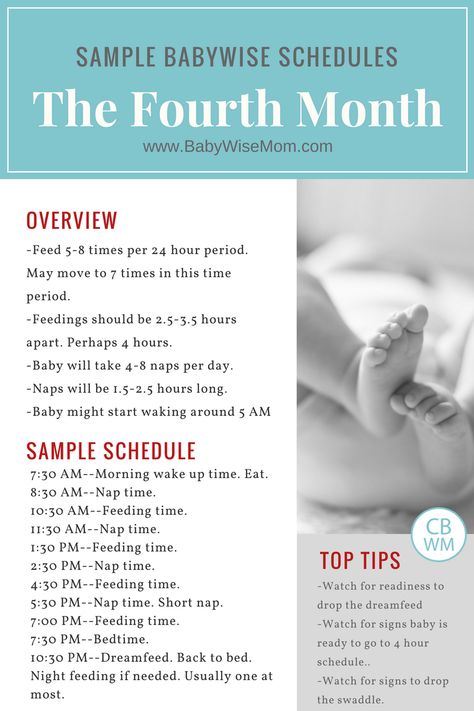 Since the relationship between the child and the mother is continuous, everything that has entered the body of a nursing mother will immediately end up in the baby's body.
Since the relationship between the child and the mother is continuous, everything that has entered the body of a nursing mother will immediately end up in the baby's body.
0-6 months
Article
Proper breastfeeding is the key to successful feeding.
The success of breastfeeding depends on several factors: choosing a comfortable position for mother and baby, some practice and proper attachment to the breast.
0-6 months
Article
Discharge after childbirth, or lochia: what a young mother needs to know
0 reviews
Lochia is a natural postpartum discharge. They appear immediately after the placenta has passed and last for several weeks until the lining of the uterus is completely healed. What do lochia look like at different stages, what is the norm, and in what cases should you sound the alarm? And is it possible to speed up postpartum recovery?
0-6 months
Article
How to increase the amount of breast milk?
0 reviews
Breast milk is the healthiest and healthiest food for a baby. It contains all the substances necessary for a small organism.
It contains all the substances necessary for a small organism.
0-6 months
Article
Hair loss during breastfeeding (HB): what to do?
0 reviews
The problem of hair loss during lactation is quite common. This process is associated with a number of factors and is generally considered natural. Why does hair fall out after childbirth and how can I get rid of this problem? More on this later in the article.
0-6 months
Article
What fruits can a nursing mother: nutrition while breastfeeding
Fruit is one of the most important sources of vitamins for humans. Both mother and child need them. What fruits with HB can a nursing mother? And is it true that strawberries and citrus fruits should be excluded from the daily diet? We will try to answer these in our article.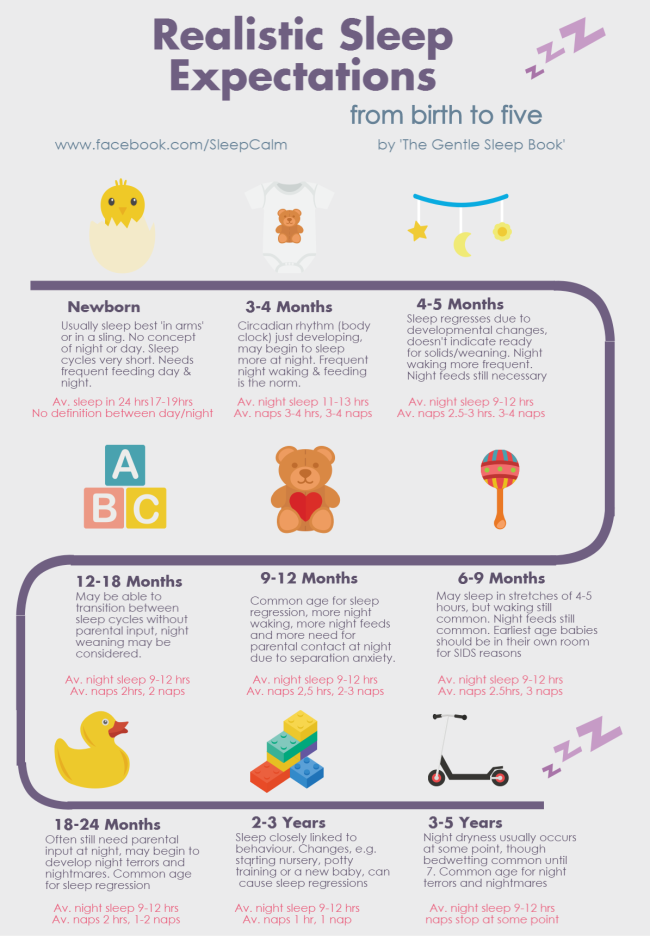
Pregnancy
Article
breast milk oligosaccharides
Human milk oligosaccharides are one of the most enigmatic components whose functions scientists have recently discovered. Find out what oligosaccharides are and what benefits they bring to your baby.
0-6 months
Article
The correct start of breastfeeding is the key to a long and trouble-free lactation
Breastfeeding is a skill that absolutely every woman possesses at the level of reflexes. The problems faced by modern young mothers are much more often social and informational in nature, rather than physiological. Even a minimum of truthful information and self-confidence will help you start breastfeeding correctly and continue it for as long as your baby needs.
0-6 months
Article
Constipation after childbirth: what to do?
Intestinal dysfunction after childbirth is a problem that all new mothers face. This is not a pathology, but a completely normal, understandable and temporary state of the female body. Why there is constipation after childbirth, when bowel function is restored and what to do to eliminate discomfort - more on this later in the article.
This is not a pathology, but a completely normal, understandable and temporary state of the female body. Why there is constipation after childbirth, when bowel function is restored and what to do to eliminate discomfort - more on this later in the article.
Join the Club
We know that being a mother is not only unlimited happiness, but also a great responsibility. We will help you!
Register
Still haven't found what you need?
Try our new search.
Search
90,000 until what age to feed a baby at night Breast milk is the ideal food for babies, so every mother should strive to keep breastfeeding as long as possible. But if for some reason it is impossible, it is important to choose high-quality breast milk substitutes and the optimal feeding regimen, close to the natural rhythm of breastfeeding. The younger the baby, the more often he needs food. Newborn children need to be fed several times at night, older children, from about six months, once. After a year, children can already sleep at night without waking up for feeding.
The younger the baby, the more often he needs food. Newborn children need to be fed several times at night, older children, from about six months, once. After a year, children can already sleep at night without waking up for feeding.
Why do newborns eat at night?
In the womb, the baby receives nourishment through the umbilical cord continuously, without separation between day and night. After birth, the volume of the baby's stomach is very small, so he cannot get enough nutrients and vitamins and minerals at one meal. Therefore, the baby needs to eat often, in small portions, so that there is no regurgitation and digestive problems.
Another argument in favor of frequent feedings is a very intensive metabolism in an infant. This is necessary to provide the body with the necessary building blocks and energy during a period of very rapid growth and development. In the first year of life, growth processes are maximum in speed, and in order for a baby to triple its weight by a year and grow by 50% of its original height, it needs to eat often and a lot.
Proper nighttime feeding of babies
Even 20 years ago there was a recommendation to maintain a break at night (from midnight to six in the morning), not to feed the baby. This was explained by the fact that the stomach needs rest, and you need to “deceive” it with some water or give it a pacifier. But today it is already known for sure that the stomach is equally active both during the day and at night. In early childhood, circadian rhythms have not yet been formed and the digestive system works around the clock.
Today, doctors recommend feeding a newborn on demand - he himself determines when to eat and how much milk to suck out for feeding. In the first 2-3 months, a child can wake up up to 3-4 times a night (between 9 pm and 6 am) to attach to the breast, up to six months - up to three times, after six months - once, less often twice.
- When breastfeeding, it is recommended to feed the baby on demand, including at night, giving up the practice of "hungry" motion sickness, the use of pacifiers or water.

- For mixed-fed babies at night, breastfeeding should be preferred. This will also help stimulate lactation in order to increase the amount of milk secreted during the day.
- Formula-fed infants should be fed every 3 hours. Let's say a break of 4-5 hours if this is a child older than 3-4 months.
Until what age should I feed my baby at night?
Many parents think that as complementary foods are introduced, the baby no longer needs nighttime feedings, because he can be fed during the daytime. Yes, of course, the baby already receives more dense food - vegetable, cereal, meat complementary foods. But this does not mean at all that he will not want to eat at night.
In the daytime, children eat a variety of complementary foods, and at night they have a need to attach to the breast, to get enough of breast milk. After all, the number of attachments to the breast in the daytime gradually decreases, and babies can compensate for this by waking up at night to feed.
If a child is breast-fed, he may have 1 to 3 nightly feedings until the end of lactation (to fall asleep, actually at night, to calm down and fall asleep). If a child is on artificial nutrition, after a year, milk formulas are almost replaced by other products. Most often, children drink cow's milk or fermented milk products at night, special mixtures for children of the second year of life (“threes” or “fours”).
Most children under three wake up at least once during the night to eat. This is quite normal and does not require any radical intervention from the parents.
Should I wean my baby from night feedings?
This issue is quite complex and it is solved individually. Up to a year, if the child himself does not refuse night feedings, they should not be removed. After a year, this issue must be addressed individually, based on indicators of height and weight, the level of physical and neuropsychic development. If the baby was born prematurely or gained weight at the lower limits of the norm in the first year of life, it is worth leaving feeding in the second year so that the child receives more nutrients for growth and weight gain.


